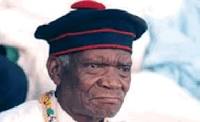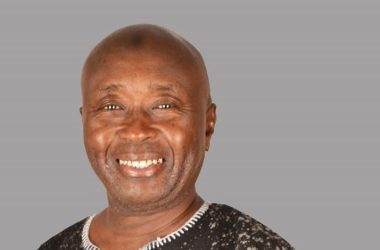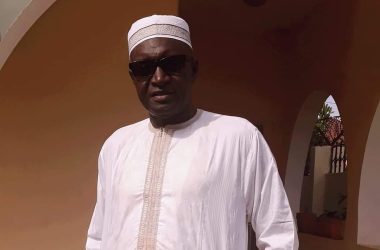
(JollofNews)- The Casamance region’s ethnic, religious, and cultural composition is different from the rest of Senegal, and since independence, the southern population has protested the north’s domination of national politics and resources.
The MFDC emerged as an armed separatist movement in 1982, and with violence peaking in the 1990s, the United Nations estimates the fighting has killed over 5,000 people, internally displaced over 60,000, and sent tens of thousands into refuge in neighboring Guinea-Bissau and the Gambia.
Calling the separatist movement “Senegal’s toughest problem,” Sall made peace in the Casamance a key initiative of his 2012 election platform, and seems genuinely committed to ending the conflict. His willingness to negotiate with an inclusive range of MFDC factions has paid dividends, as have the multiple, youth-oriented development projects his regime has launched in the Casamance.
After months of mediation through Sant’Egidio, a Catholic lay organization based in Rome, the leader of the MFDC’s most militant and powerful faction, Salif Sadio, publically agreed to a ceasefire and the commencement of formal peace talks.
Government concessions – which included the dropping of charges against key rebel leaders and promises to promote the economic development and political integration of the Casamance region – were key factors in the agreement and increase the odds that the ceasefire will be endorsed across the MFDC movement. (David Seyferth, 2014)

Agriculturally one of the potential richest regions in Senegal, the Casamance has suffered from the effects of an 18-year separatist movement. Civilians have been displaced, and many have lost their means of livelihood. Land mines have been laid in many formerly productive areas. Villages have been abandoned. Infrastructure has been neglected, and investment has come to a virtual standstill.
The causes of the conflict and its perpetuation are complex. Factors often cited as contributors include historical factors, economic neglect, lack of job opportunities for youth, land rights issues, and disrespect for indigenous cultural norms. The conflict has had negative effects on virtually every aspect of life in the Casamance: the environment has degraded due to uncontrolled exploitation or neglect, normal village life and social support systems have been disrupted, poverty has increased, the cities are overcrowded, schools and health posts have been closed or displaced, and investment and tourism have declined.
In 1982, supporters of the Mouvement des Forces Democratiques de la Casamance demanded that the Govern-ment of Senegal grant independence to the Casamance region, an isolated section of southwestern Senegal located between Gambia and Guinea-Bissau. This demand sparked a two-decade-long conflict, which only recently began to be resolved.
The conflict worsened in the late 1990s with the appearance of anti-personnel and anti-tank mines. These landmines have adversely affected the population, agricultural activities and tourism, as well as hampering donor and NGO efforts in the region. No accurate information is available regarding the total quantity of landmines or the number of landmine casualties.
Over the years, hundreds of villages have been abandoned and schools and health centres have closed. Hundreds of children and women have become victims of landmines and risk of exposure to sexually transmitted infections (STIs) and HIV/AIDS has increased due to population displacement, the presence of combatants and increased poverty. The nutritional status of children has also deteriorated.
Are we today on the verge of a new round of military intervention?
A sober debate over military intervention might benefit from a brief look back into history. We are seriously concerned over the trend towards the normalization of military intervention into situations designated as humanitarian crises. The world must not be allowed to return to the situation before 1940, when international law was little more than ink on paper. The discontent of (parts of) a population in a given country cannot be used as an excuse to destabilize, attack or occupy weaker countries, thereby undermining the international legal order.
Humanitarian interventions are often defended under the premise that all else has been tried and failed. In reality, it is usually the Western powers that undermine a negotiated settlement, or fail to give negotiations a reasonable chance. This was the case in Kuwait (1990), in Somalia (1993) and in the former Jugoslavia (1996-1999). It also holds true over the past decade. The South African president did not complain without reason to the UN Security Council, arguing that the African Union had been pushed aside in the search for a negotiated settlement in Libya. Moreover, the West continues to fuel conflict by arming, training and financing one (or more) of the conflicting parties. Also has demonstrated very well its dangers and capacity for catastrophic failure.
We cannot accept that the West compensates for its waning global power by using humanitarian military interventions as a cover for pursuing geostrategic interests. We can no longer look on passively as powerful economic interest groups set out to conquer the world “in our name.” We stand against the politics of intervention, even when it wraps itself in the cloak of humanitarianism. A wolf remains a wolf, even when dressed in sheep’s clothing. (Ludo De Brabander, 2012)
Conflict can affect the level of development in a country in a number of ways. Firstly, conflict is likely to disrupt the distribution of food and other resources to the population. It is argued that the main cause of the 1984 famine in Ethiopia was not drought or overpopulation, but the fact that the food could not be distributed to the people due to the sheer size of the country and the scale of the war which was going on at the time.
Secondly, many services, such as schools, are devastated by conflict which can cause literacy rates to fall – an indicator which is often seen as the key to more widespread development. Also, conflict can cause an imbalance in the population structure, as men of economic age are those most likely to be involved in the fighting.
If military intervention the solution to the Cassamanse conflict, then?
How many shall die?
How many shall make it to the refugee camps?
How many shall lose their business?
How many shall be homeless?
How many shall be raped?
How many shall commit suicide?
How many shall be separated from their families and loves ones?
How many shall migrate?
How many shall live in hunger?
how many shall take the gun to retaliate?
How many pregnancies shall be aborted?
How many shall be crying both day and night?
And how many of her resources shall be looted?
I may never be President of Casamance samance, but at least I have earned unreserved rights to good governance by virtue of my citizenship and my law-abiding nature. I, hereby, do solemnly pledge to consistently and continually fight for this noble right of mine, along with those who care to join me towards liberating Casamance.
Finally, at the end of the day, military intervention does nothing to resolve the underlying reasons for conflict in Cassamance. More often than not, conflict is the result of poverty or socio-economic Inequality, which in turn has its origins in destabilizing agricultural, trade and debt policies emanating from Western dominated institutions. The resources wasted on military intervention might otherwise have sufficed to pursue policies aimed at social development, which might in turn have contributed to the prevention of violence.
To be continued……..
By Saidina Alieu Jarjou





Jammeh squandered the opportunity to bring peac and political autonomy to casamance. This is a debate I always thought is relevant in Senegambia. But Jammeh and the Jola elites missed the opportunity. Instead of looking for a peaceful outcome for casamance they strategised to change the reality of Gambia and maybe one day lay claim on casamance. Well Gambia has escaped their grip and casamance in despair. I think gambia is now forced to concentrate on her own trials while casamance continue to fenda for herself. It is sad.
Good point, jammeh don’t have a good gestures for gambia all he wants to build a royal kaninliay, which will enable him to be comes a king if he has won the election . The man is all about him self.
There was a good article on Freedom Newspaper describing how Government forensic teams looking to unearth more bodies at Kanalai were threatened by Casamance rebels who had taken over Kanilai. One soldier stated to shoot one of them in the head if he came closer. Is Kanlai now part of Casamance?
So much for sovereignty/ and what about these landmines?
But does it really make sense that Cassamance rebels should annex Kanilai? Then what is ECOWAS’s presence worth in the country. Are they avoiding a blood birth. If this is true, claims of a prevailing democracy in the Gambia would be nothing but a farce.
The truth in that news needs to be verified. It is a curious sensation that other media are not probing.
From outset of the write-up, it sounds an inspiration and a promise of light at the end of a long dark tunnel but suddenly rang discord and rumours of war.
The landmines are obviously products of Western industries or perhaps warehouse-workshops of Western elements but the fertile farmlands and neighborhood backyards have been landmine booby-trapped by none other than ‘Cassans’ or by Senegalese forces if we want to blame it on conspiracy…But oops, they would want to patrol the neighborhood backyards, the farmlands and the thick jungles with men and hardware so not a good idea to them.
Africans should stop putting the blame on the West where not necessary. We should reflex better than we usually do seeing that the West is a perfect hangout for rebel leaders and a holiday spot for heads of States.
Africans must try doing intelligent things together without violence. One needs to pull the trigger of a purchased firearm to take the life of a fellow citizens regardless of which party or group you belong.
Saidna, stop tip toeing around the truth, the Senegalese government has always preferred a peaceful settlement to the Cassamance issue that is why they have never make an all out military assault on the rebels. Several efforts at bringing the rebels to the negotiation table have failed because the rebels who are made of mainly Jola tribe refused to agree to a political settlement even though they are not the only tribe in Cassamance. Who and what are they fighting for when all the other tribes that Cassamance is made of are at peace with the authorities in Dakar??? Stop the pretense, you are not neutral in your analysis. MFDC are not powerful and have never been powerful, they are just an irritant and a torn in the flesh for the Senegalese government. And that is mainly because they control no territory so it is difficult to fight them without civilian casualties, which is what successful Senegalese governments have been avoiding. President Barrow should work closely with Macky Sall to bring peace to the region but they should also make an end to the rebels using Gambia as a save heaven and a launch pad for their clandestine activities. To put it nicely, give them the stick and carrot option.